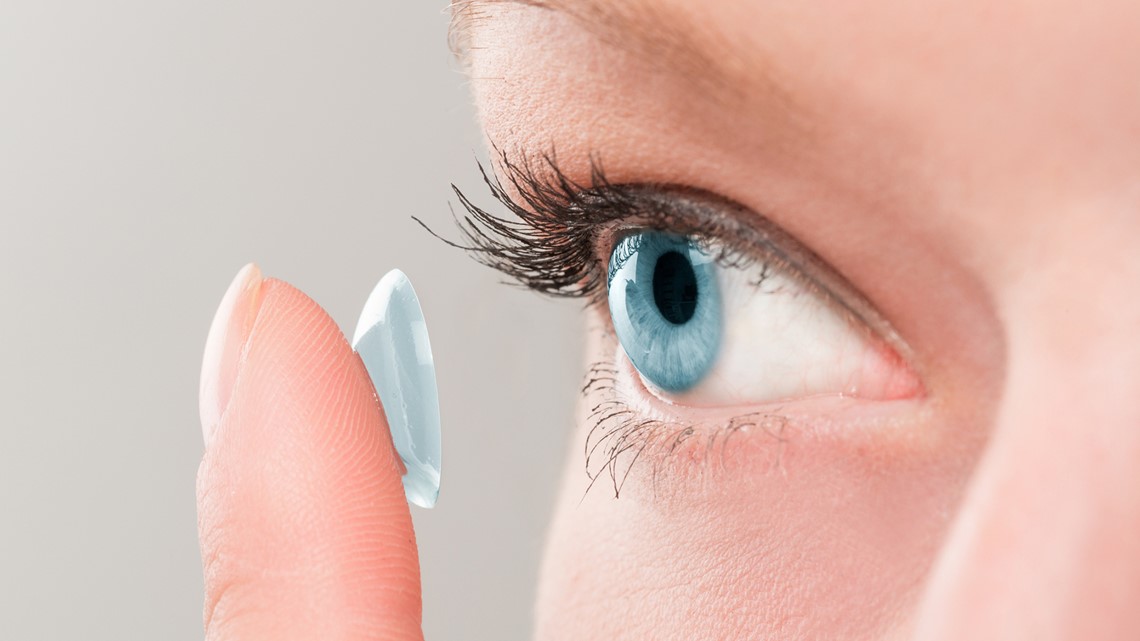Contact lens wearers are being urged to switch to glasses temporarily as a way to avoid being infected by the coronavirus.
One of the key pieces of advice medical professionals have been giving is that people should avoid touching their face. Contact lens wearers touch their faces and eyes multiple times a day, whether it's for putting in contacts, taking them out, or adjusting them if they get a little out of place.
The American Academy of Ophthalmology notes that droplets caused by someone coughing or sneezing can get into the eyes.
Touching a surface that has the virus and then touching the eyes can also lead to infection.


The academy says switching to glasses would not only cut down on the number of times a person touches their face, but the glasses can serve as an extra layer of protection against those droplets that could contain the virus.
In rare cases, it has been found that a person infected by the coronavirus can develop conjunctivitis, or pink eye, according to the academy. It develops in about 1% to 3% of people with the virus. An updated alert sent to ophthalmologists Thursday warned that a patient with pink eye combined with symptoms such as fever, cough and shortness of breath could represent someone who has contracted COVID-19.
The academy has advised ophthalmologists to temporarily cease any treatments and examinations other than urgent or emergency care. This is partly to cut down on opportunities for the virus to spread, but also to reduce the use of critical medical equipment which are in short supply.
For patients who need eye medication such as glaucoma drops, the academy suggests getting an extra supply in case a long period of quarantine is necessary. Some insurers will approve a three month supply under special circumstances.

